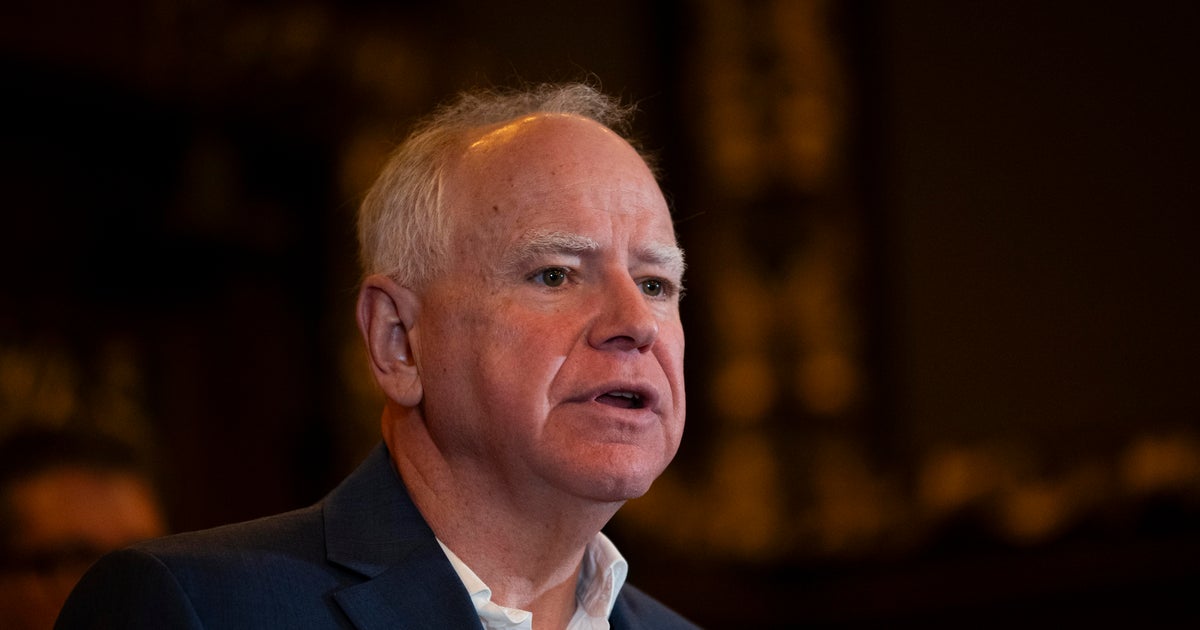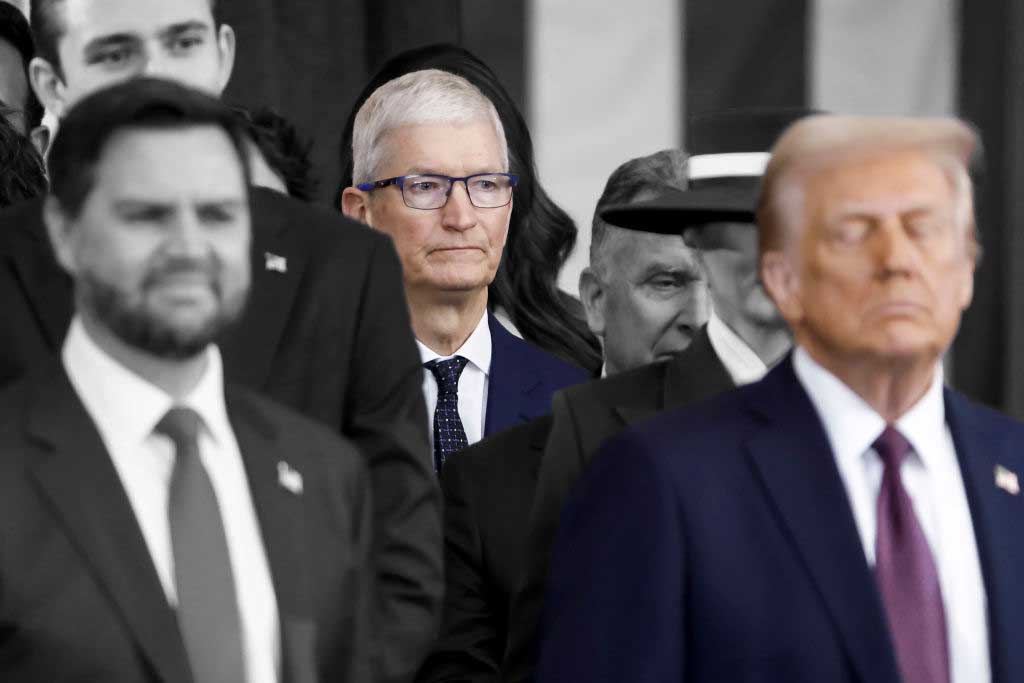Tim Cook says Apple's $100 million racial equity initiative is "about giving people opportunity"
Tech giant Apple is spending $100 million to expand opportunities for communities of color in technology and entrepreneurship.
Speaking with "CBS This Morning" co-host Gayle King, Apple CEO Tim Cook and Vice President Lisa Jackson are revealing new details about the racial equality initiative, launched last summer after the killing of George Floyd at the hands of Minneapolis police.
"It's about giving people opportunity," Cook said. "I can't wait to see students that are able to enjoy the innovation hub at the Propel Center."
The company said it would team up with Historically Black Colleges and Universities around the country to open special learning hubs — "propel centers" at "100 or so" of these educational institutions across the country.
"Think of it as an innovation hub and we'll work on things from coding, to machine learning, to creativity, to entertainment arts," Cook said.
On top of those skills, the centers will also help students sharpen their entrepreneurship — "a lot of the things that we do here will be in the curriculum there," Cook summarized.
Asked if he was a good student himself, Cook answered: "I tried to be."
As for Vice President Lisa Jackson, she first served as President Obama's EPA administrator before coming to Apple in 2013.
Jackson, who runs all of Apple's environmental and social policy efforts, said HBCUs "have a history of turning out the leaders in our community."
She described Apple's Propel Centers as both "a place for all HBCU students and the surrounding community," and a talent pool for Apple and other companies to find ready recruits.
"We know that the talent is already there. We know these students are trying to do what every student does — propel themselves to a better future and a better life," Jackson said.
Even the name of the program itself — "Propel Center" — aims to motivate.
"This is meant to be a little bit of wind under their sails," Jackson explained.
In Detroit, a city with at least 50,000 small businesses owned by people of color, Apple is revolutionizing job training.
"The first ever, in the United States, app developer academy," Jackson revealed, aimed at giving "some extra lift to Black and brown developers."
She said, "There is a concentration of strivers in Detroit who are trying to build their city back."
Tim Cook called the city a "fantastic footprint."
"We want to provide people a mechanism to learn to code, to learn how to write world class apps," he said.
Aspiring applicants should demonstrate "desire, creativity, a level of interest," Cook said, adding that "you want to feel that desire of someone who really wants to make a go at this."
One of the programs at their Detroit academy is aimed at people who have never studied coding at all.
Cook said he believed anyone could learn to code.
"You know, I did it in school," he said. "Once you start, you recognize that it's just another language."
But while building the next generation of minority tech entrepreneurs, Apple is also supporting the current one through a $10 million dollar investment in Harlem Capital, a fund whose goal is to back a thousand companies founded by people of color in the next 20 years.
Asked when and how he first identified systemic racism, Cook said he "firsthand witnessed it" while growing up in the 1960s and 1970s.
"When I was five years old, John Lewis was beaten on the Edmund Pettus bridge. When I was eight years old, the riots at Stonewall happened," Cook recounted. "Both of these changed the course of time and changed the course of my life as well."
He continued, "When you either experience those sort of things or read about those things, and then apply them to what you're seeing today, there was systemic racism, there is systemic racism, and it's not gonna go away unless we do something about it."
Cook is speaking out about the current political situation as well — saying he was shocked by the violence that occurred at the U.S. Capitol as Congress met to count state-certified Electoral College votes.
"It was a very, very sad and shameful day. I could — probably like you — I couldn't believe what I was seeing either. I felt like I was in some other form of reality or something," Cook said. "I think it's key that people be held accountable for it. This is not something that should skate."
The tech CEO is holding social media app Parler accountable, claiming it failed to remove language inciting violence from its platform. Popular with the far-right, Apple took it off the app store over the weekend — effectively preventing anyone with an iPhone from using it.
"Parler has some issues with moderation. There are some incitement to violence examples on there, and they need to step it up on the moderation. And I'm — our hope is that they do that and get back on the store," Cook said.
He pointed out Parler's removal was just a suspension, rather than a full ban.
Parler CEO John Matze has publicly criticized his app's removal from Apple and other hosts, claiming he was being censored and his First Amendment rights were being violated.
"All we're asking, Gayle, is that he meet the terms of service," Cook said. "We have terms of service for our app store, and some of those terms of service he's in violation of."
Looking ahead to 2021, Cook said his goal remains the same as years' past — "to do as much as I can to help other people and enrich their lives."
"That's Apple's goal," he said. "For the country, I hope that we enter a stage in our country where we're back to bipartisanship."



